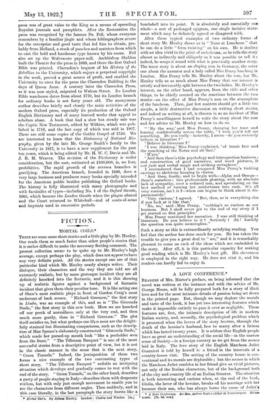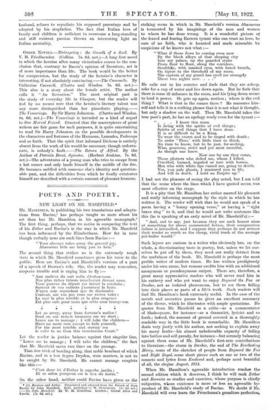A LOVE CONFERENCE.*
READERS of Mrs. Harter's preface, on being informed that the novel was written at the instance and with the advice of Mr. George Moore, will be fully prepared both for a story of illicit love and for the most intimate details of passion being set down in the printed page. But, though we may deplore the morals and taste of the book, it has yet two interesting features which make it impossible entirely to pass it over as negligible. These features are, first, the intimate description of life in modern Italian society, and, secondly, the psychological problem which is presented when the lovers of the story become, through the death of the heroine's husband, free to marry after a liaison which has lasted twenty years. It is seldom that English people have so great an understanding of the social life—in the narrow sense of Society—in a foreign country as we get from the scenes laid in Italy. The love story of the English Marchese. Juliet Guarnieri is told by herself to a friend in the intervals of a country-house visit. The setting of the country house is con- ventional and its morals are deplorable ; but the scenes in which the Marchesa Juliet confides in her friend give us vivid pictures, not only of the Italian characters, but of the background both of the city and country life of an Italian Senator. The situation is both interesting and curious when, at the end of the book, Giulio, the lover of the heroine, breaks off his marriage with her because their son, who has always borne the name of Juliet's • A Love Conference. By Mrs. Arthur Harter (Ethel de Fonblanquo). mann. Va. ed.. net.)
husband, refuses to repudiate his supposed parentage and be adopted by his stepfather. The fact that Italian love of family and children is sufficient to overcome a long-standing and still existent passion throws an interesting light on Italian mentality.



































 Previous page
Previous page